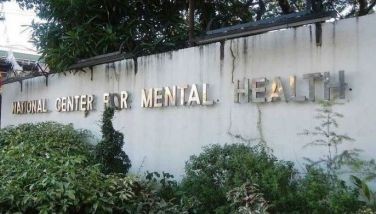On proposal to declare property as Rented or Leased: CCCI appeals to city council for exemption
January 22, 2006 | 12:00am
The Cebu Chamber of Commerce and Industry recently appealed to the city council for an exemption from a proposed ordinance mandating owners or administrators of lands and buildings to submit to the Office of the Mayor an annual sworn declaration whether their property is rented or leased.
"We request that the proposed ordinance be revised to exclude real estate lessors whose incomes are mainly based on the leasing revenues," Renato Avila, CCCI taxation committee chairman, stated in a two-page position paper.
Members of the CCCI should be exempted from the proposed measure because their business incomes have been derived from leasing while religiously paying their respective taxes, said Avila.
Avila also said the lease contracts come in varied terms and conditions with varied lease periods. He added that some lease contracts do not just provide for fixed rentals but percentage rentals based on lessees' gross receipts.
Since the gross receipts of lessees vary-daily, monthly, and yearly bases-and periods of lease contracts vary, "it becomes impossible for the Office of the Mayor to assess and fix business tax on real estate lessors solely on the basis of the contracts of lease that we will furnish," Avila said.
Avila argued that the city does not need such ordinance just to verify, determine or assess the tax on real properties because there are laws that remedy such. The assessment of the business taxes on real property estate lessors should be based instead on the reported gross receipts that are certified by the external auditors.
"These reported and audited gross receipts may well and truly serve as the reliable basis for computing the business tax on real estate lessors like ourselves as the same can be verified and validated vis-à-vis our book of accounts," said Avila.
Councilor Joy Pesquera reintroduced the proposed ordinance, actually filed first in the 2002 council, to address the difficulty of assessment and collection of business tax from real estate lessors.
A lessor's tax is imposed upon owners of real estate including accessories, apartelles, pension houses, inns, lodging houses, apartments, condominiums, houses for lease, rooms and spaces for rent and the like.
But it has been found that owners or administrators of these properties have refused to declare their holdings either as leased or rented, making it hard for the city to assess the tax due on their businesses.
Pesquera said the measure's penalty clause calls for sanctions against violators, with fines ranging from P2,000 to P5,000 and imprisonment or both.
In a related development, the barangay captains joined in objecting to the proposed measure citing a provision that requires them to do an annual inventory of leased properties in their areas, based on the declaration of the owners or administrators.
Association of Barangay Council president Eugenio Faelnar said the requirement would mean a tremendous burden on record keeping to the barangay officials.
"The proposed ordinance should be made to apply only to those owners and administrators whose property is on lease so as to limit the volume of the records to be kept," Faelnar said.
Faelnar recommended instead that the Office of the City Assessor should be the recipient of the lessor's declaration. He further hoped that the proposed measure be amended before its final deliberation and eventual approval in the city council. - Garry B. Lao
"We request that the proposed ordinance be revised to exclude real estate lessors whose incomes are mainly based on the leasing revenues," Renato Avila, CCCI taxation committee chairman, stated in a two-page position paper.
Members of the CCCI should be exempted from the proposed measure because their business incomes have been derived from leasing while religiously paying their respective taxes, said Avila.
Avila also said the lease contracts come in varied terms and conditions with varied lease periods. He added that some lease contracts do not just provide for fixed rentals but percentage rentals based on lessees' gross receipts.
Since the gross receipts of lessees vary-daily, monthly, and yearly bases-and periods of lease contracts vary, "it becomes impossible for the Office of the Mayor to assess and fix business tax on real estate lessors solely on the basis of the contracts of lease that we will furnish," Avila said.
Avila argued that the city does not need such ordinance just to verify, determine or assess the tax on real properties because there are laws that remedy such. The assessment of the business taxes on real property estate lessors should be based instead on the reported gross receipts that are certified by the external auditors.
"These reported and audited gross receipts may well and truly serve as the reliable basis for computing the business tax on real estate lessors like ourselves as the same can be verified and validated vis-à-vis our book of accounts," said Avila.
Councilor Joy Pesquera reintroduced the proposed ordinance, actually filed first in the 2002 council, to address the difficulty of assessment and collection of business tax from real estate lessors.
A lessor's tax is imposed upon owners of real estate including accessories, apartelles, pension houses, inns, lodging houses, apartments, condominiums, houses for lease, rooms and spaces for rent and the like.
But it has been found that owners or administrators of these properties have refused to declare their holdings either as leased or rented, making it hard for the city to assess the tax due on their businesses.
Pesquera said the measure's penalty clause calls for sanctions against violators, with fines ranging from P2,000 to P5,000 and imprisonment or both.
In a related development, the barangay captains joined in objecting to the proposed measure citing a provision that requires them to do an annual inventory of leased properties in their areas, based on the declaration of the owners or administrators.
Association of Barangay Council president Eugenio Faelnar said the requirement would mean a tremendous burden on record keeping to the barangay officials.
"The proposed ordinance should be made to apply only to those owners and administrators whose property is on lease so as to limit the volume of the records to be kept," Faelnar said.
Faelnar recommended instead that the Office of the City Assessor should be the recipient of the lessor's declaration. He further hoped that the proposed measure be amended before its final deliberation and eventual approval in the city council. - Garry B. Lao
BrandSpace Articles
<
>
- Latest
- Trending
Trending
Latest























